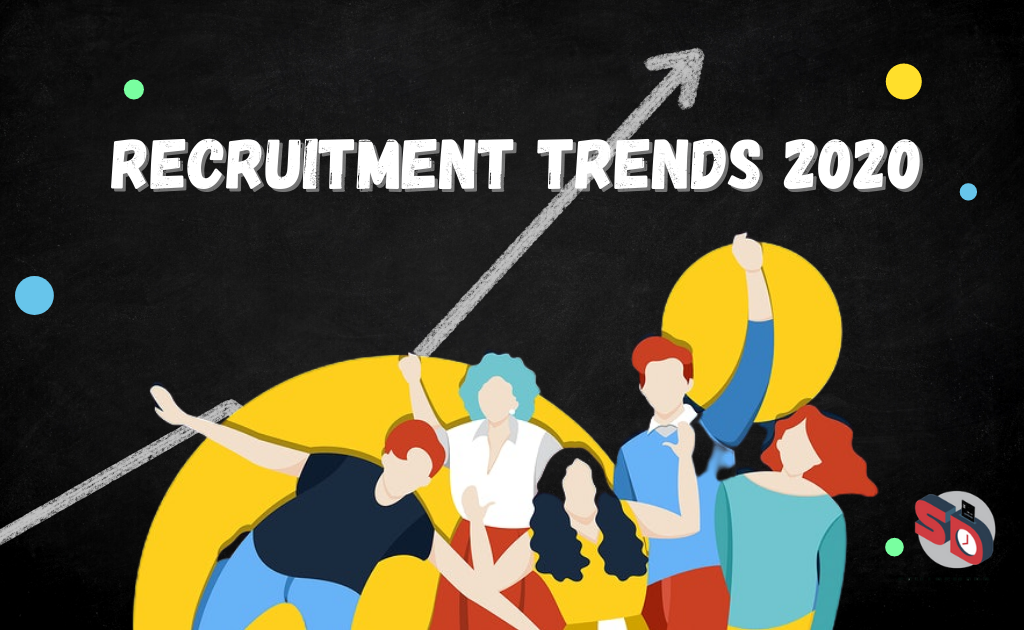If you are in the recruitment industry, you realize how your poor shirt feels inside the washing machine the moment you press START. Lucky you if this is not your experience yet, but businesses worldwide are trying their best to deliver to the new recruitment trends dominating the year 2020.
Until 2019, things were well in order with legacy businesses starting to automate their recruitment processes, work on gender parity, and diversity hiring with a greater focus on employee relationship management, and pay-scale mapping.
Since COVID19 broke into our world, all that practices of 2019 have turned out to be some blowfish that need mindful cooking to make it poison (read: repercussion) free. COVID19 has turbocharged everything by tuning up the anxiety level of the world and challenging businesses to existential crises.
So, in this article, you learn about trending recruitment practices that are not likely to go out-of-focus in the near future.
1. Employee Referral Programs
Employee referral programs aren’t new. But now in the pandemic stricken market, an Employee referral scheme is on the trend in innovative ways. Through this kind of program, a business can create and manage a vibrant and well-knit workforce with reduced onboarding formalities.
The employee referral program is now trending because referred hires are more engaged and more productive with lesser tendencies to quit. With a well-thought-out employee referral program, companies are also able to reduce hiring cost and keep the existing workforce motivated.
2. Social Media Hiring
It has never been this relaxing ever before. Hiring candidates through social media has naturally found its way into the recruitment practices. Hiring management and leadership post opportunities through their social media platforms and use the network to match suitable profiles.
Social media hiring through LinkedIn, social media hiring through Twitter and social media hiring through Facebook have hit popularity. Prospective employers and employees get to know each other at a personal level in public light which is again significantly cost-effective.
3. Supporting Global Movements
Did you realize that in 2020, it is not just the pandemic, but several crises related to human rights violation ranging from racial discrimination to age discrimination to political extremism are collectively undermining the economic prospect of businesses nationwide?
So, in 2020 recruitment practices, supporting global movements help corporations attract the best of minds across industries. Unlike before, equal opportunity employer (EOE) is no more a mere disclaimer; recruiters are now actively seeking the non-binary, the baby boomers, and the POC.
4. Leveraging Industry 4.0 Technologies
Until 2019, the recruitment function was overwhelmed adjusting to legacy enterprises introducing basic process automation. Startups with legacy leadership sold outdated resume processing systems for robotic process automation (RPA) but now, COVID19 forced in a change for good.
In 2020, an experienced candidate submitting their resume to an organization can easily sense a company’s recruitment technology capability further helping the candidate to decide whether or not to join the organization courtesy Artificial Intelligence (AI) and Natural Language Processing (NLP).
5. Streamlining Remote Work
Start January 2020, remote workforce management became the new norm to comply with global social distancing regulatory enforcements.
Businesses in no time asked people to work-from-home without enough time for preparing their technological capability for the future of work.
Six months down the guts, enterprises that started early on have gained a little stability in terms of calibrating their technology to streamline their remote work capacity without any disruption as part of their business continuity plan. But not all organizations have succeeded, and hence this trend is to stay and compound until satisfactory infrastructural arrangement.
6. Professionals as Entrepreneurs
One of the most profitable trends that businesses have adopted this year is to hire skilled professionals as entrepreneurs. The earlier practice of handing out a job description is now obsolete. Now, recruiters are hiring talent that knows their job; professionals who know their merit, and have an entrepreneurial mindset.
Organizations that practice micro-management with impenetrable hierarchy, aversion to innovation management, and individuality of professionals are reportedly failing at attracting/retaining professionals as entrepreneurs who have refined experience to drive optimum business success.
7. Hiring Gen Z
How do you plan for a wild Africa safari without a native guide? In the digital world, to dare hiring Gen Z (born mid-to-late in the 90s) is to dare hiring the digital natives; the livewire of the workforce in 2020. Companies employing these digital natives have already crossed the finishing line of smart recruitment.
Working with Gen Z is indicative of an organization already successful at all the six trends preceding this point. Hiring Generation Z requires a business to be attractive about its people policy, business policy, technology, and community championship.
Conclusion
The leadership at the helm of SkillDemand encourages every business, small, medium, or large, to immediately focus on the strategic implications of the six recruitment trends that we have discussed in this article.
The 2020 recruitment practices or hiring strategies are trending because we are in the dragon’s mouth already and to overcome the situation, businesses should immediately call for meetings to recalibrate their recruitment strategy for now and the years to come.
.



